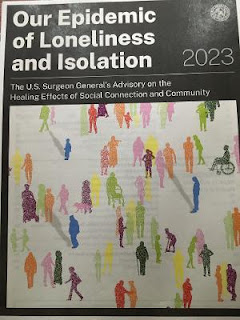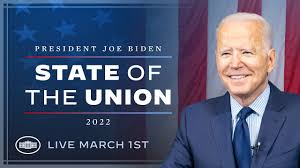According to the U.S. Surgeon General’s Our Epidemic of Loneliness and Isolation: Advisory on the Healing Effects of Social Connection and Community, « The world is just beginning to recognize the vital importance of social connection » (p. 45).
Well, not quite! After all, Aristotle (384-322 B.C.) considered friendship indispensable and said that no one would choose to live without friends, even if one had all other goods (Nicomachean Ethics, VIII, 1). So what is at last being recognized in this Advisory is actually just being rediscovered. And in that lies an important part of the tale!
That said, the U.S. Surgeon General, Dr. Vivek H. Murthy, has produced a must-read warning about the importance of social connection and the harmful health and other consequences of our increasingly diminished social connectedness, in which « loneliness and isolation are more widespread than many of the other major health issues of our day. »
Given the Surgeon General’s public role, it is unsurprising that the Advisory focuses on a lot on the health benefits of human connection and the harms connected with a lack of or a diminished degree of connection for both for our physical and mental health. The fraying of our social fabric also has consequences more broadly in society, corresponding with near historic highs of levels of polarization. Meanwhile, more hours are being spent alone and fewer engaging with friends (a decline starkest among young people 15-24).
In 2022, single-person households account for 29% of all U.S. households, more than double the 13% in 1960. At the same time, only 47% of Americans claimed church membership in 2020, down from 70% in 1999. The document rightly recognizes religious groups’ social benefits as a source for regular social contact and a community of support, providing meaning and purpose, creating belonging around shared values and beliefs, and reducing risk-taking behavior.
Unsurprisingly, those most at risk for loneliness and isolation include those in poor health, the financially insecure, those who live alone, and the young and the old. Of course, technology is one of the culprits. Americans spend an average of six hours per day on social media, of whom 1/3 report being online « almost constantly. »
Given what we have all experienced and observed in recent year, none of this seems all that surprising.The same might be said of the document’s analysis of the individual health risks associated with diminished social connection, which emerges as an independent risk factor for disease and death. This includes depression, cognitive decline, and dementia.
And, then, of course, there is our increasingly frequent focus on social and political polarization. According to one survey, some 64% believe people are incapable of constructive and civil debates about issues they disagree on.
If anyone still has an optimistic take on the way we live and where we are heading, this document is an accessible, much needed, excellent corrective. Perhaps, it might have been asking too much to have expected it to delve deeper into the long-term trends which have caused and exacerbated our present predicament. Perhaps, highlighting such problems as the breakdown of the family and the decline of religion in the wake of the so-called sexual revolution and other cultural devaluations of traditional human institutions in recent decades would have been ideologically too difficult for a document of this sort to face. All the more reason, therefore, why such considerations so very much need to be confronted in connection with their very visible consequences.




